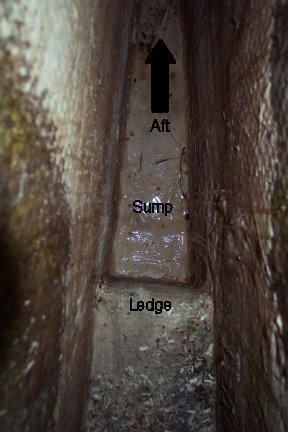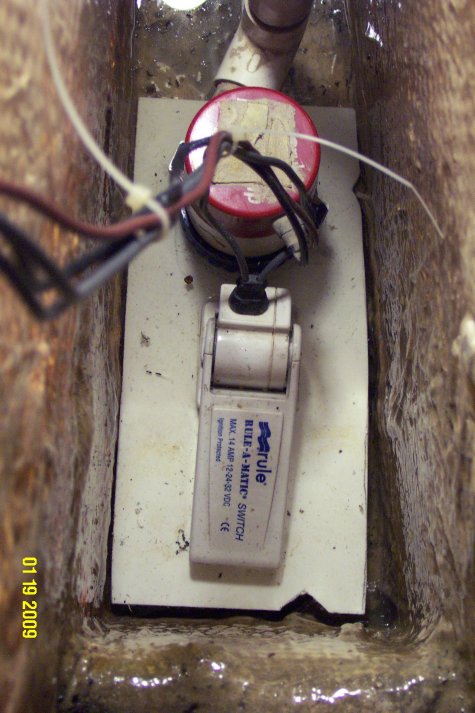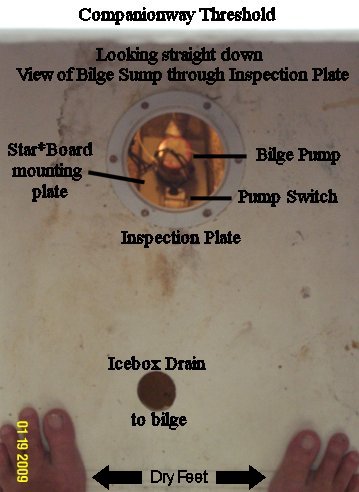PROJECT DRY FOOT
At some time in the past, this boat suffered serious interior flooding. It was of sufficient severity and duration to cause delamination of nearly every piece
of plywood on board, affecting the structural integrity of the boat. She was not seaworthy.
She was subjected to hurricanes, rain squalls, and neglect. Although she was on the hard, she had no garboard drain. The only way to clear her bilges was a
manual pump which was apparently rarely used.
One of my first decisions was to install an automatic bilge pump. The problem was, I could not find any access. The suction hose for the manual pump disappeared
through a hole in the cockpit locker, but I couldn't tell where it went. It wasn't until I removed the icebox that I was finally able to find the bilge
sump. I cut a hole in the cabin sole, almost directly below the companionway threshold, to allow access.

What became a poser was how to mount an electric bilge pump in this sump. I experimented with wood, but decided it was not the ideal material because of
possible repeated immersion. I decided that the best alternative was to make a mounting plate for the pump and switch out of Star*Board, trimmed to fit
snugly in the sump to prevent shifting.
I debated how to anchor the plate because I didn't want to drill any holes into the boat. Unless I learn differently, I decided the plate was stable enough
without anchoring it.
The tradeoff is that the bilge pump is 1/4" above the bottom due to the thickness of the Star*Board. Therefore, there will always be a few cups of water in the
bilge. I decided this was unavoidable and acceptable. As a precaution, I painted the bilge sump with epoxy. The result is shown here:

The final installation is seen here though the inspection plate access in the cabin sole, under the cooler. I have put a light in the bilge to enable
this photograph. Because of this installation, the icebox must be removeable (See Project Frosty) to enable access through this
inspection plate.


























